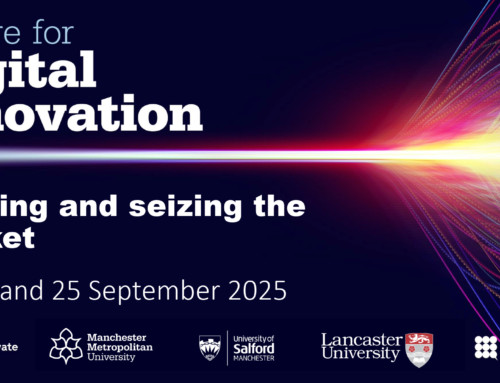What are AI agents? And why are they becoming so important?
Author: Jayasree Varadarajan| AI Technical Analyst Lead| Centre for Digital Innovation| Manchester Metropolitan University
Artificial Intelligence (AI) is everywhere, from virtual assistants like Alexa and Siri to customer service chatbots and recommendation systems. But one of the most exciting developments in the AI space right now is something called AI Agents.
If you’re not sure what that means, you’re not alone. In this article, I’ll explain what AI agents are, how they’re different from regular AI tools, and why they matter for everyday business and life.
What is an AI agent?
An AI agent is like a digital assistant that can think, plan, and act to complete a task—without constant human supervision.
Think of it like a trusted employee who:
- Understands a goal (e.g., book a meeting, monitor emails, manage inventory),
- Figures out what steps to take,
- Acts across different apps or platforms,
- Learns and improves over time.
While traditional AI tools wait for you to give a command or ask a question, AI agents can work on their own, making decisions, solving problems, and getting things done behind the scenes.
Real-life examples of AI agents
Here are some simple ways AI agents are already showing up in our lives and workplaces:
- Travel assistant: you tell it you need to go to London next week—it checks your calendar, books flights and hotels, and sends you a confirmation.
- Email organiser: it reads your emails, flags urgent ones, drafts replies, and files the rest.
- Customer service agent: it chats with customers, finds their orders, processes refunds, and even updates your CRM—all without human help.
- Sales tracker: it monitors new leads, sends follow-up emails, and alerts your sales team to take action.
How are AI agents different from chatbots or tools like ChatGPT?
|
Feature |
Traditional AI tool
(e.g., ChatGPT) |
AI agent |
|
Needs instructions |
Yes | No (works independently) |
| Performs one task | Yes |
Can handle multiple steps |
| Adapts to changes |
Limited |
Yes, often re-plans or learns |
| Works across apps | Not always |
Yes, connects systems |
So, while a chatbot might give you advice on writing an email, an AI agent could write the email, send it, and schedule a follow-up automatically.
Why do AI agents matter to business and daily life?
AI agents are becoming a big deal because they can:
- Save time by automating repetitive, manual work across departments.
- Boost productivity – they get things done 24/7, without breaks or delays.
- Improve customer experience, giving faster, smarter responses with less human effort.
- Reduce costs by freeing up employees to focus on creative, high-value work.
AI agents are like digital team members, they’re efficient, tireless, and always learning.
Are AI agents safe and reliable?
That’s a good question—and the answer is: it depends on how they’re built and used. Good AI agents are trained responsibly, follow clear rules, and include human checks when needed. Like any tool, they can make mistakes if not set up properly. So businesses need to test, monitor, and update them regularly. Find out more about AI governance
What can you do now?
Even if you’re not a tech expert, you can:
- Start small: try AI agents for tasks such as scheduling, email, or customer service.
- Ask your team: “What tasks take too much time that AI might help with?”
- Keep learning: the world of AI is moving fast, so stay curious and informed.
- Use with care: ensure that privacy, accuracy, and fairness are always considered in the setup.
Final thoughts
AI agents aren’t science fiction; they are already transforming the way we work and live. And they’re not here to replace people, they’re here to support them.
By understanding what AI agents are and how to use them wisely, you’ll be better prepared for the future of work and better positioned to take advantage of one of the most exciting trends in technology today.
Let’s not just watch the AI wave; let’s ride it smartly.




